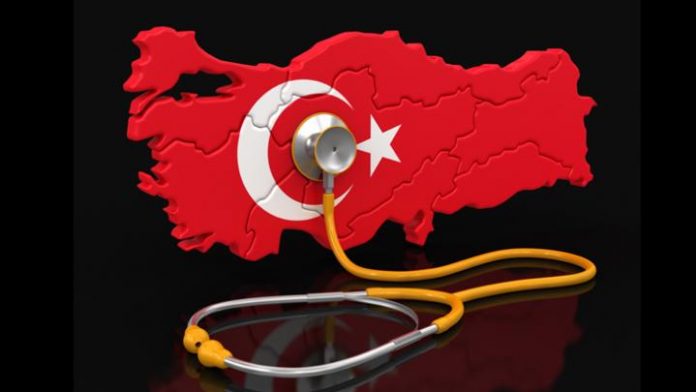Inbound tourism in Turkey in the past year fell by 30% to 25.3 million, according to the latest statistics. European numbers fell by 35%. Germany is now the main source market for Turkey with 3.89 million visitors.
Inbound tourism in Turkey in the past year fell by 30% to 25.3 million, according to the latest statistics- but these are still only provisional estimates. The country welcomed 36.2 million foreigners in 2015. The main reasons for the decrease are the persisting security problems in the country.
The Ministry of Culture and Tourism total tourism numbers for foreigners in 2016 were 25.35 million, compared to 36.24 million in 2015 and 36.84 million in 2014. The data comes from The Turkish National Police.
European numbers fell by 35%. Germany is now the main source market for Turkey with 3.89 million visitors (5.58 million in 2015). Georgia ranked second with 2.21 million tourists (1.91 million in 2015), followed by the United Kingdom at 1.71 million (2.51 million in 2015).
866,000 Russians visited Turkey in 2016, which is 76% less than the year before – at 3.65 million. These numbers from the Association of Russian tour operators (ATOR) are reported as data from the Turkish Ministry of Tourism and Culture. Turkish authorities hope that in 2017 the inbound tourism will recover and the ministry expects 3 to 3.5 million Russians in 2017.
According to official body Turkish Statistical Institute, for 2016 inbound tourism income fell by 29.7% to $22 billion.72.8% of this income was from foreign visitors, 27.2% from citizens resident abroad. The large number of overseas Turks counted in the tourism figures may help explain the historic discrepancies on numbers in tourism and medical tourism.
The main sources for medical tourism were once Russia, UK, Germany and other European countries. The oil crisis means that numbers from the Gulf are not increasing as hoped, while political tensions have drastically cut numbers from Libya. Visitors are still coming from Iran, Georgia and Bulgaria. There is no accurate up to date data on medical tourism nationalities.
The sector has been hit hard by a series of deadly attacks since 2015, the coup attempt in July 2016 and the diplomatic crisis between Ankara and Moscow following the destruction of a Russian bomber by Turkish aviation for violating Turkish airspace in November 2015. The two countries normalized their relations last June and Moscow lifted the sanctions imposed since this incident on the Turkish tourism sector with the return of the first Russian charters in September.
Turkey was once the rising star of medical tourism with numbers rising every year, but now it is a falling star with numbers in 2015 to 2017 taking big hits due to terrorism, Syria, human rights issues, embargos, political instability and political rows with Russia.
Competing Turkish organisations have never agreed on medical tourism numbers with some wild claims having been widely circulated of over a million, and even of 700,000 in hospitals and clinics. Part of the confusion is whether or not figures are medical or health tourism, but part is over optimism and political spin. While 200,000 was a rough estimate in recent years, it is now suggested that the annual figure is around 100,000- and that includes 15,000 plus for hair transplant surgery and 25,000 for eye surgery and 20,000 for cosmetic surgery– so medical tourism in hospitals has taken a huge dive in numbers. The real problem is that there is no accurate source for any of this. Most accept is that medical tourism numbers have fallen drastically- although some local sources say numbers have not fallen drastically, just that more realistic numbers are being used.
In 2010, the Ministry of Health issued a plan of having one million foreign patients a year by 2020. The plan intended to increase the number of medical tourists to 500,000 by 2016 and 600,000 by 2020 and 750,000 by 2018 and 2 million by 2023 by introducing tax-free health care zones specifically tailored for foreign patients.







 ©2024 All rights reserved LaingBuisson
©2024 All rights reserved LaingBuisson 


